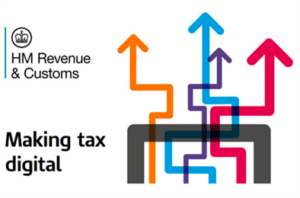What is Making Tax Digital for income tax?
If you are a VAT registered business then you will likely have already heard of Making Tax Digital. Making Tax Digital is where a business is required to keep their records digitally and submit your financial information to HMRC on a quarterly basis. Digital records mean that you have stored your records in a computerised format, this can be within an accounting software, or within a spreadsheet. If you use a spreadsheet you will still need to use a software to transmit the date from your spreadsheet to HMRC.
How do I keep digital records?
Most businesses are already keeping records digitally, either within a spreadsheet or within the many available accounting software. It means that each business transaction is detailed within your records. You can still keep paper copies of receipts, however many of the available software allow you to attach receipts to transactions, relieving you of this need too. As mentioned above, if you are using spreadsheets you will still need a software to make the submission to HMRC, so you may as well cut out the middle man and go for an accounting software. This will make the whole record keeping process a lot easier. There are many cost-effective software solutions and as we get closer to the deadline there will be many more!
Who is affected by Making Tax Digital?
If you are a sole trader with a turnover (total sales income) of more than £10,000.00, if you are a UK landlord with a turnover (total sales income) of more than £10,000.00, or if you are both a sole trader and a UK landlord with a combined turnover (total sales income) of more than £10,000.00 then as of April 2023 you will be required to sign up for making tax digital for income tax. You can also sign up to the pilot from now, but there are some limitations with the system right now, you can only sign up if you have one business and have not received any COVID financial support. These limitations will not affect sign up in April 2023 – it will be mandatory for all sole traders and UK landlords with a turnover that exceeds £10,000.00.

How often do I have to submit my Making Tax Digital summary to HMRC?
You are required to submit a summary to HMRC every three months. If you are VAT registered you can align the summary submissions with your VAT returns to make this more convenient. Once you have made your summary submission you will receive an estimated tax calculation from HMRC. This is great to help you budget for your annual tax bill.
Do I still need to fill in an Annual Tax Return at the end of the financial year?
Yes, you will still need to submit your annual tax return and all tax due will need to be paid by 31st January of the year following the end of the financial year you are submitting for. The good news is, that having made your quarterly summaries to HMRC you will be right on top of your records and preparing and submitting your tax return will be a doddle!
How do I register for making tax digital?
You can register by visiting the HMRC website here.
You don’t need to do this until nearer the time, unless you want to sign up to the pilot.
Do you have any questions? Feel free to get in touch by emailing contact@brightbookkeepingservices.com and I will happily help!
If you need help keeping on to of your records, you can find out about our bookkeeping services here.




